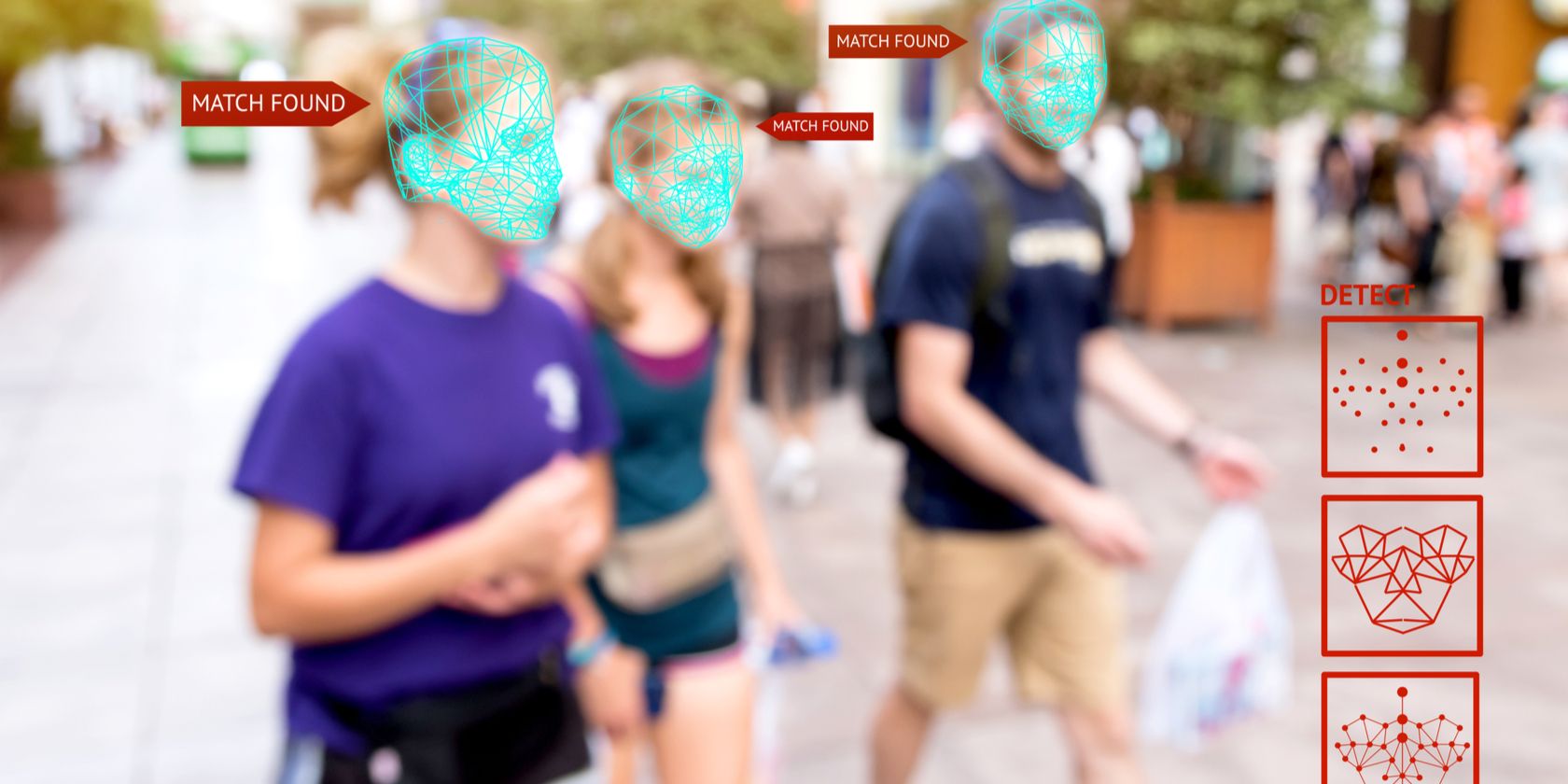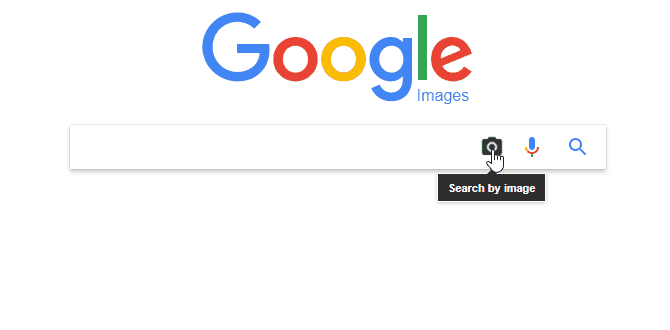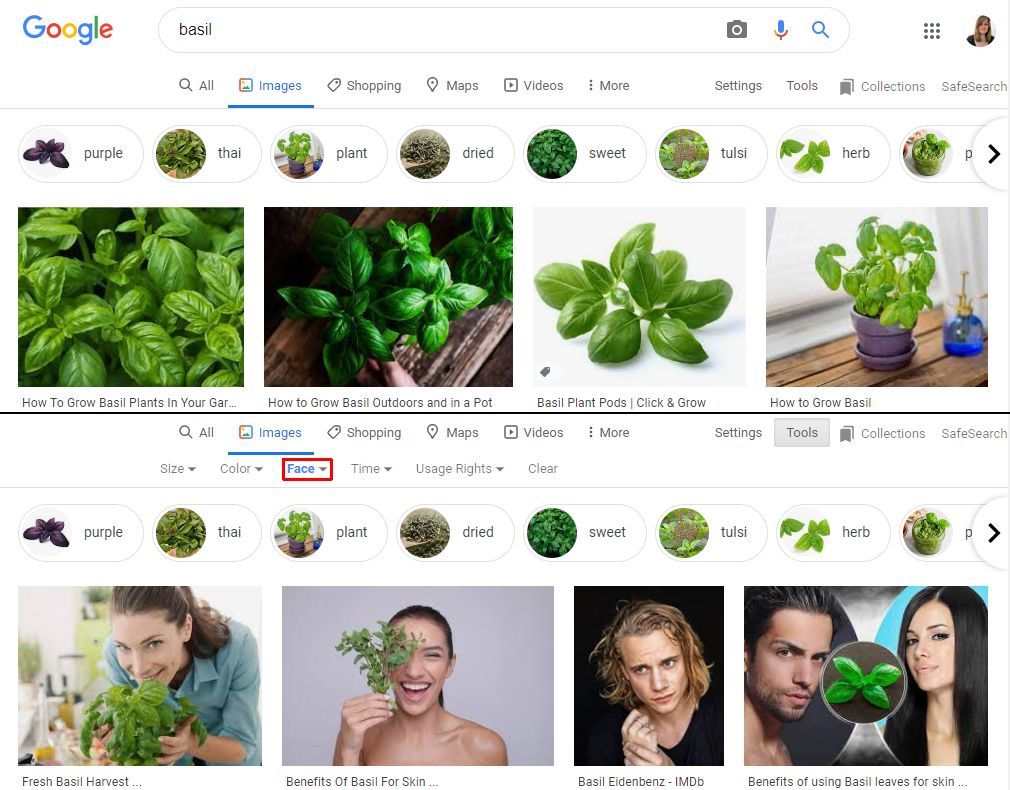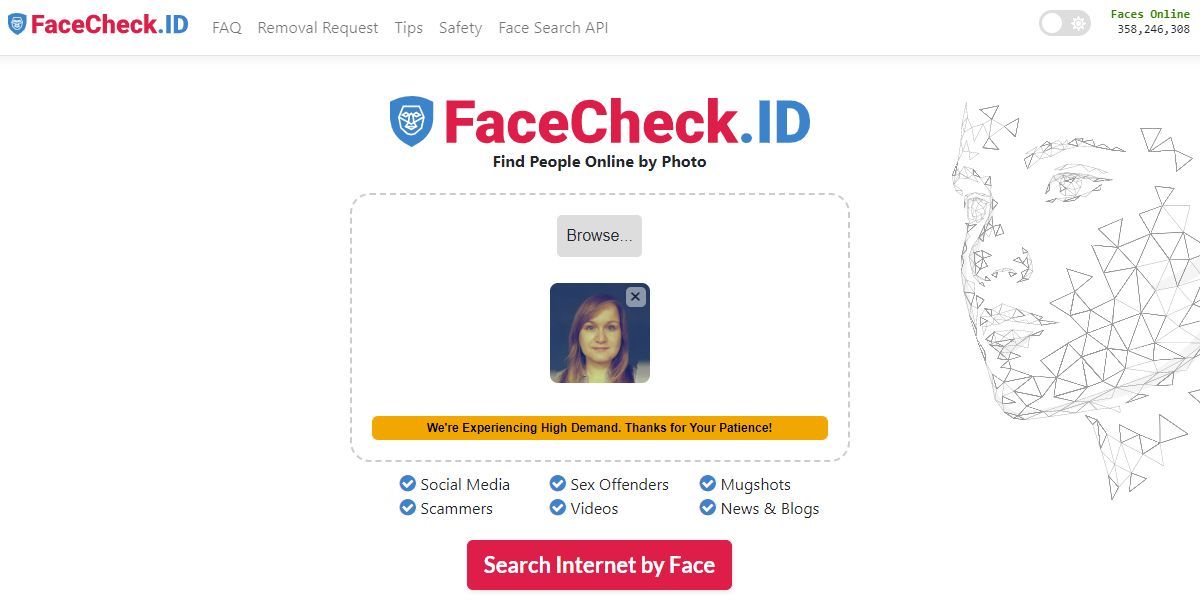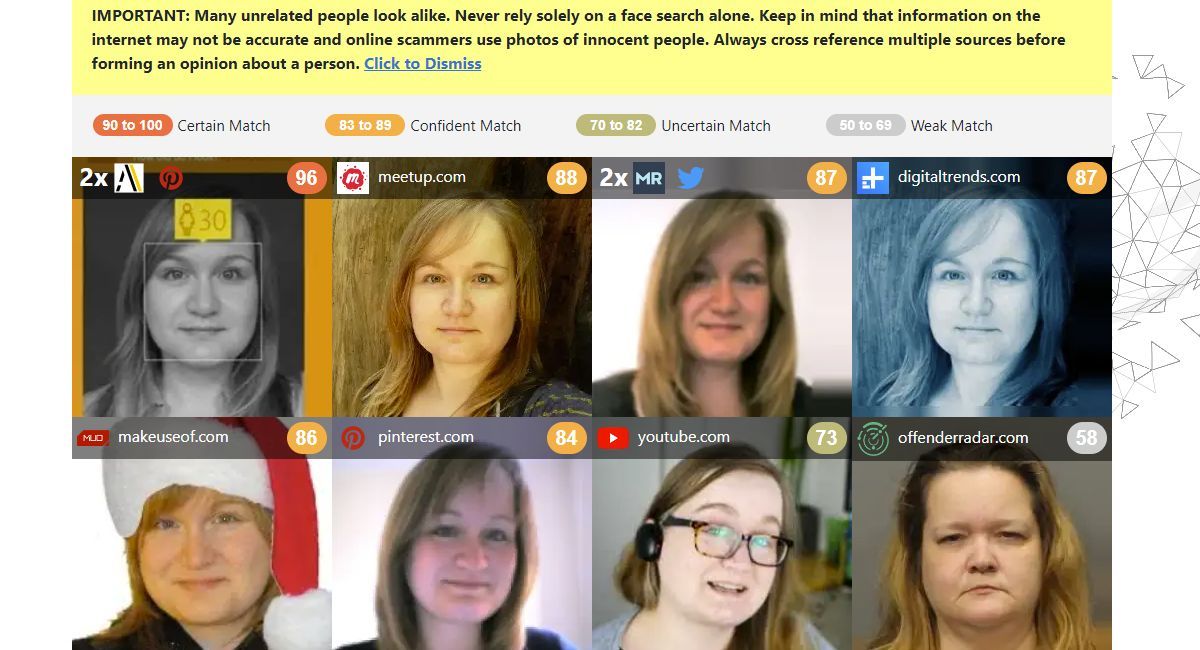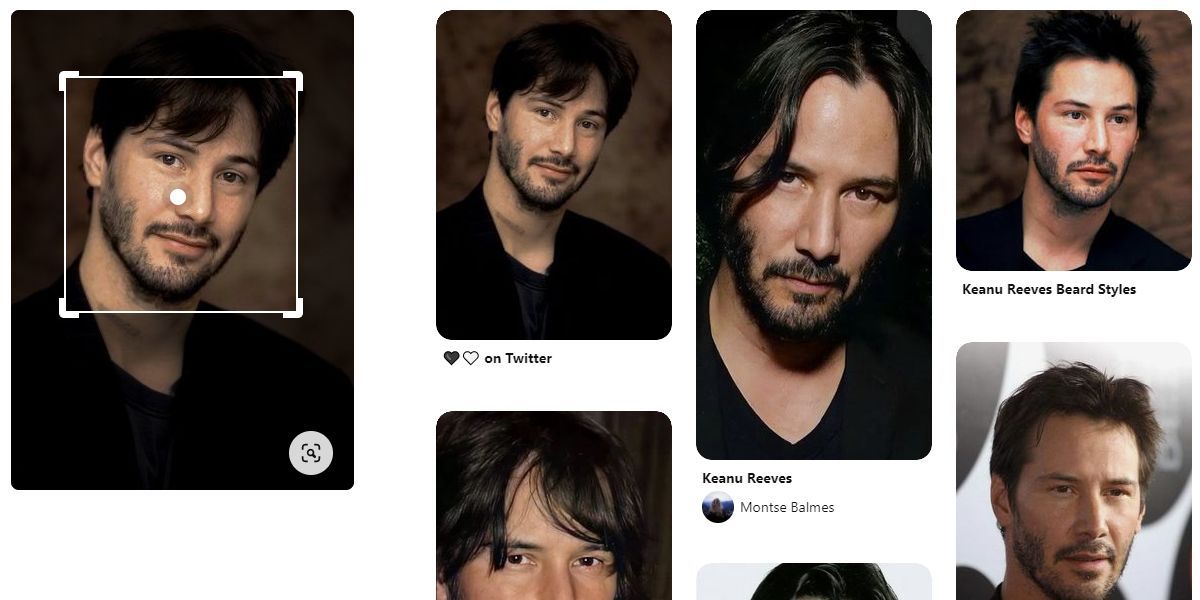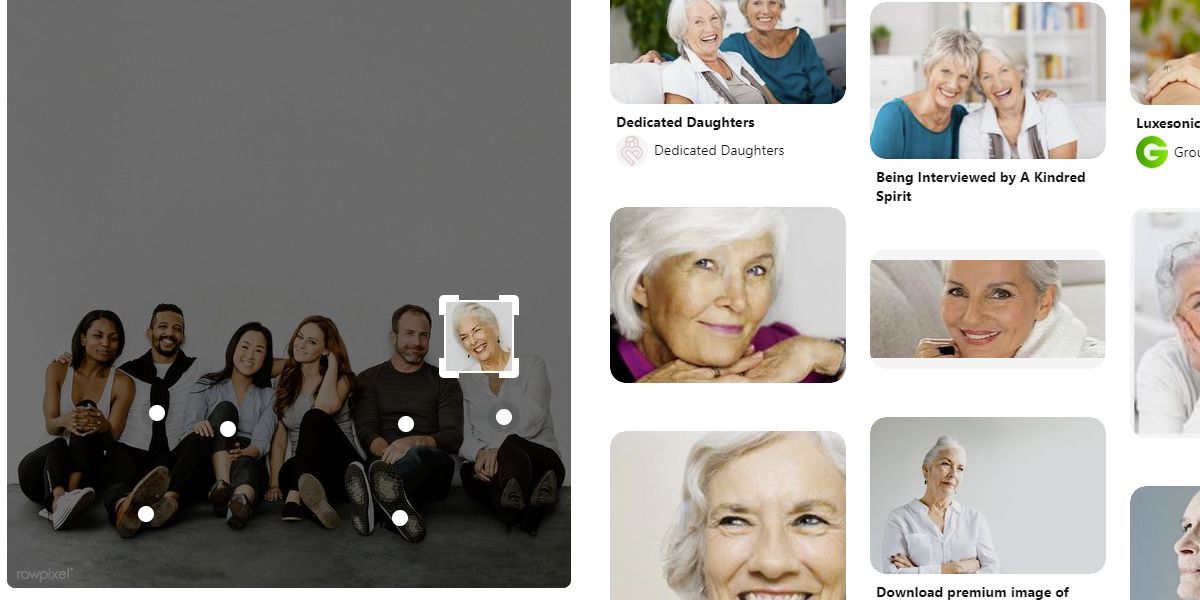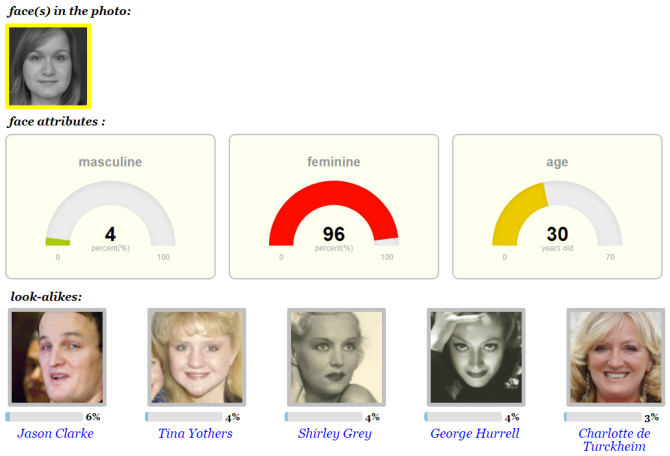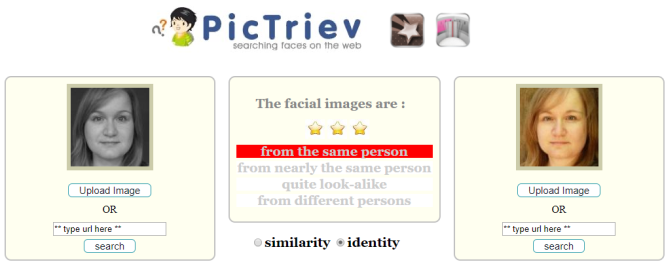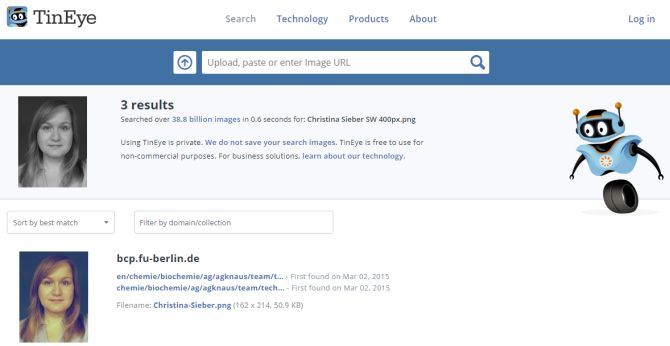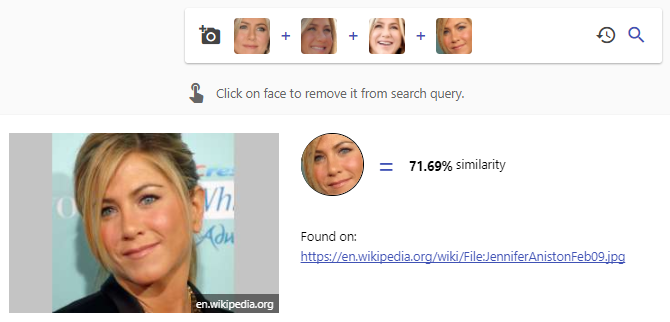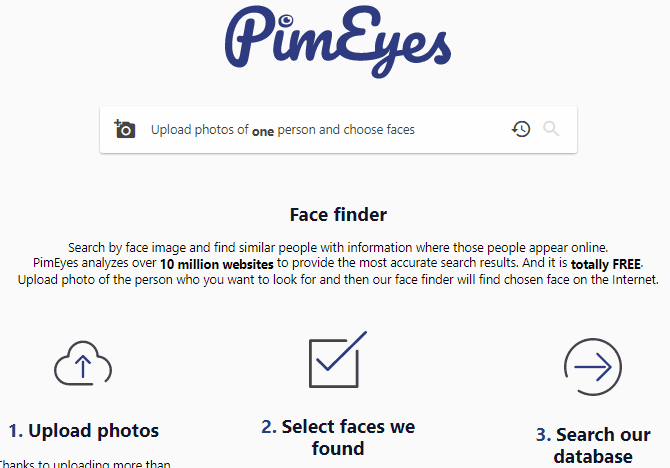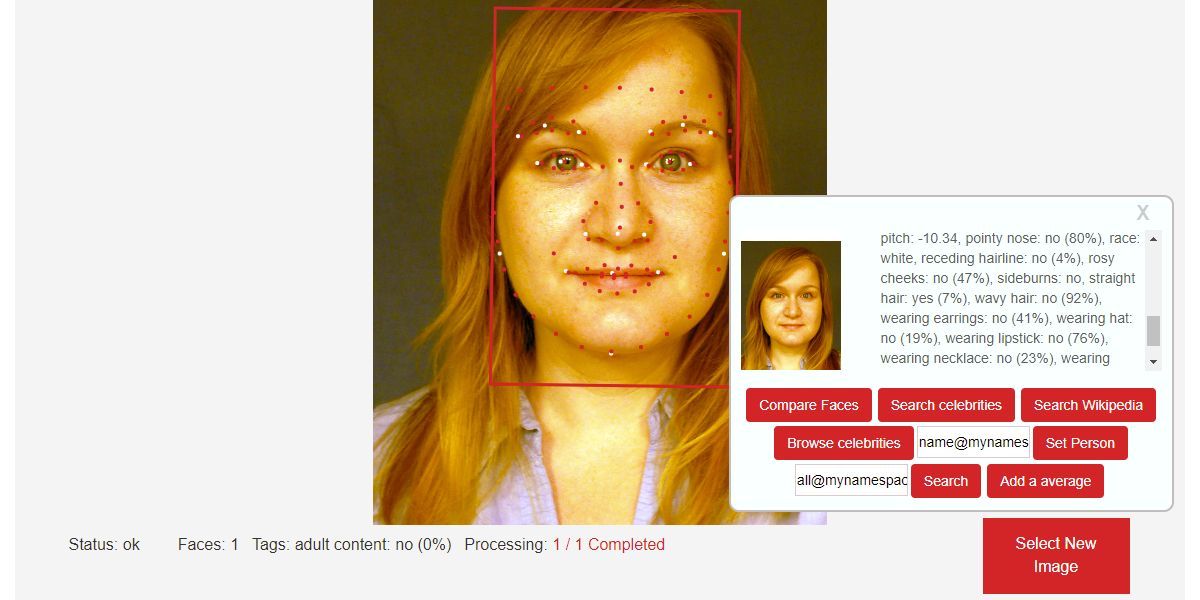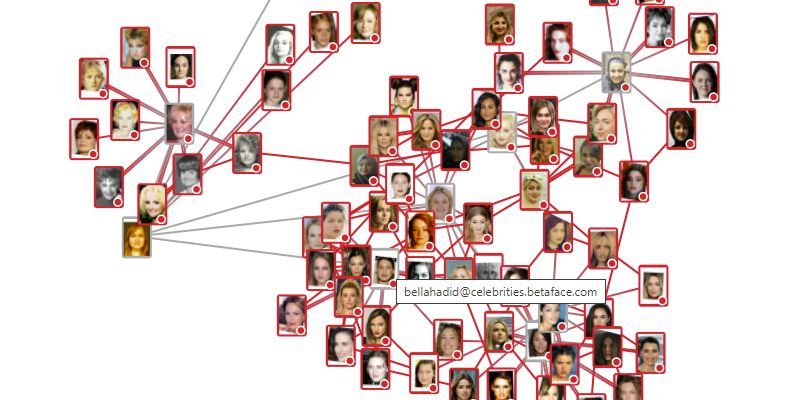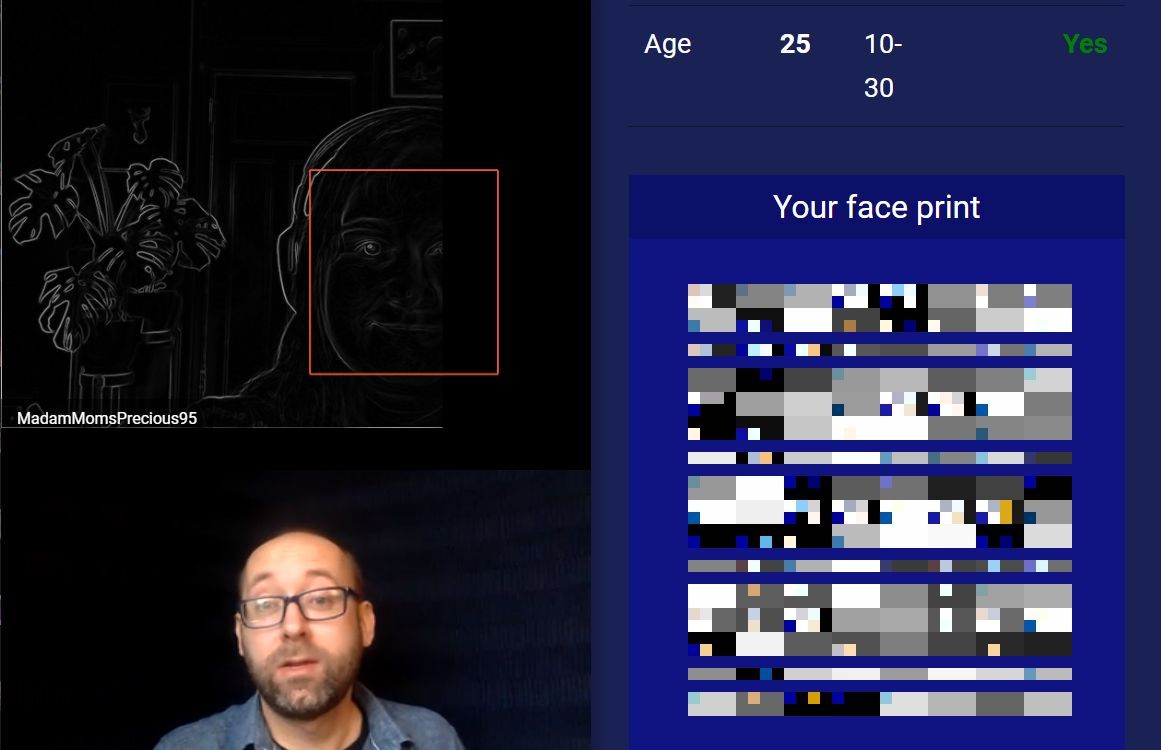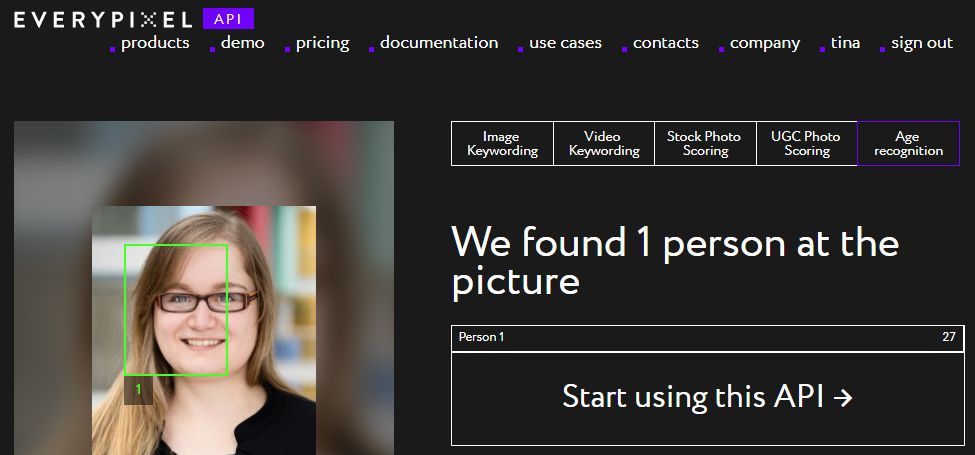A photo is all it takes to find a person online, but a reverse face search can do a lot more. Face search engines can surface account profiles or (celebrity) lookalikes, and paired with artificial intelligence, they can even estimate someone's age, attractiveness, or BMI.
Let's explore some of these face search engines to see what they can tell us about you or your friends.
1. Google Images Search: Reverse Face Search
Did you know that you could search Google by images? Rather than a keyword, you can use an image to search for similar images. Click the camera icon to search by image. You can either paste the image URL or upload an image and Google will find similar images.
Moreover, you can make Google search for faces only by adding a small bit of code.
When you go to Google Images Search, enter your query, hit Enter, and then add "&imgtype=face" (without the quotes), either to the end of the search URL or right before another string starting with &. This will further improve the results of your face-related search.
Below is a before and after example of a search for "basil" that you can try for yourself:
Once you add the image type to the URL, you'll also find this option under Tools > Type. Google also offers its face recognition in Google Photos, meaning you can search your photos for people and even pets.
2. FaceCheck.ID: Check Photos Against Online Profiles
FaceCheck.ID is an AI-powered facial recognition search engine that helps you find people's social profiles, online accounts, and any criminal records available online.
When you submit a photo, you have to agree not to confront, harass, stalk, or blackmail a person, or otherwise abuse the information you gather using this tool.
In my case, it identified seven photos of me and dozens of lookalikes, some flattering, some less so, such as the person that was logged on the Offender Radar. Fortunately, even FaceCheck.ID wasn't very confident in this match, as it only rated it at 58 points, making it a weak match.
3. Pinterest: Reverse Image Search
Much like Google, Pinterest contains a reverse image search option that you can use to find similar photos or faces. First, find a suitable Pinterest pin or create your own by uploading your target photo.
Then, open the Pinterest pin and click the magnifying glass icon in the bottom-right corner of the image. Pinterest will now show you similar pins.
What's amazing about Pinterest's reverse image search is that you can improve the results by selecting a portion of the image. Just adjust the selection frame to zone in on a face. In other words, if you used a group photo, you could search for a specific person by drawing the frame around their face.
Clearly, you can only find images pinned on Pinterest, which limits this tool's usefulness.
4. PicTriev: Face Recognition
PicTriev goes one step further by actually searching for similar faces. Unfortunately, the feature is limited to lookalike celebrities.
What you do is add the URL or upload a photo in JPG or JPEG format, with a size, no larger than 200 KB, and the search engine will return matching celebrity images found online.
For demonstration purposes, I used my own headshot. While PicTriev correctly identified me as overwhelmingly female, the number one match was Jason Clarke. The age estimation of 30, however, is very flattering.
It works much better if you search for a celebrity image.
PicTriev also lets you compare the similarity of two faces or estimate whether photos of two faces are the same person. Click the meter icon on the top right, upload two photos, select similarity or identity, and let PicTriev do its calculations.
Before you add photos, be sure to follow the instructions on formatting for the best results.
5. TinEye: Reverse Image Search
TinEye's reverse image search works almost like Google. You can upload an image or paste a URL and search for it. TinEye does not support any more search operators, making it both simpler and basic.
In my test, TinEye found three results, one of which Google had not included because the site died years ago. Also, it missed a newer result that its big brother had picked up. To me, this indicates that TinEye's search index is largely outdated.
Unlike Google, TinEye links directly to the pages where it found the images, and it skips similar images.
6. PimEyes: Face Search
Similar to Google's reverse face search, PimEyes uses images and face recognition to search for similar faces on over 10 million websites. The demos using celebrity faces like Angelina Jolie or Zac Efron look promising.
For example, you can search for Jennifer Aniston's face using four different photos at once. PimEyes will find the original photos, as well as other shots of Aniston.
Curiously, while the app does find the original pictures used for the search, the similarity is only scored at around 70 percent. Shouldn't it be closer to 100 percent? Or does the algorithm take image resolution, size, brightness, and other digital alternations into account?
I tried the service myself, providing PimEyes with three different photos of me to analyze.
There are other photos of me to be found online, but PimEyes didn't spot them. The best it could find was someone else's face, with a 62 percent similarity. Apparently, my pictures do not appear on one of the ten million sites analyzed by PimEyes.
Note that PimEyes offers a 24 hour deal that unlocks access to its premium search results. But given my questionable results, I would not recommend paying for this service.
7. Betaface: Facial Recognition Demo
Betaface offers a facial recognition search similar to PicTriev's photo identification. You can upload an image or send the image URL. First, the tool will analyze the image. Click the rectangle drawn around the face to see the detailed results.
Next, you can click one of the buttons to compare faces (with other images you uploaded), search celebrities, search Wikipedia, or browse celebrities for each recognized face. The results will either appear below the analyzed photo or (for search celebrities) in a new browser tab.
This tool is useful for uploading and comparing photos in bulk. In addition to classifying faces based on 22 basic facial points and 101 pro facial points, you can also enable extended geometric and color measurements, as well as a "best face only" feature. Both of these slow down the processing, but will increase the quality of your matches.
8. How Normal Am I?: Face Comparison
Do you wish you were special? This narrated AI experience demonstrates how algorithms judge your age, gender, attractiveness, emotions, BMI, life expectancy, and more just based on your face. If you're willing to expose your face through your webcam, this is a fun experiment.
I took the test twice. The results were quite wrong both times. The first time, the algorithm thought I was a man and gave me a 33 percent normal score. The second time, it correctly judged me as female and gave me an 18 percent normal score. Go figure.
This art project was developed by Tijmen Schep using funding from the European Union. Read the terms and conditions to find out how your data will be used.
9. Everypixel Age Recognition: Face Recognition
This tool uses a photo to guess the subject's age. It's a machine learning API demonstration that also covers other details AIs can learn from visuals, such as the subject's gender, happiness, race, education, or occupation.
While its guess that I look 27 in the photo is quite flattering, it's way off. It also guessed with 58 percent certainty that I'm Caucasian, and 46 percent certainty that I was wearing glasses. Well?
Microsoft used to offer a similar tool and learned some fascinating details. Apparently, wearing a hat can make you look younger, while glasses will make you look older, and losing your beard can also shave off some years.
You can learn more about machine learning by using Microsoft Lobe.
Avoid Paid Face Search Services
Many tools offer to find people by photo, but only few are free and trustworthy. Social Catfish, for example, presents itself as a comprehensive people search engine that digs into social networks, forums, and other online networking sites.
Once you've completed a search with potential matches, however, you won't see the results until you pay a fee. Most of these paid services fail to deliver results that are significantly better than the free tools presented above, so it's best to stay away from them.
If you've been trying to uncover identity theft, copyright infringements, or worse with these tools, consider professional help instead.
What Does Your Face Reveal?
Face recognition and search tools have a range of useful applications. Not only can they help the police identify suspects from security camera footage. They can also help professional photographers or media companies index visual material and build large and easy to search archives. Moreover, face recognition can replace passwords and keys.
But there's a dark side to every tool. Not too long ago, the Facezam viral marketing scam highlighted what face recognition could do to your privacy. The creators of the app claimed that—within seconds—you could find anyone's Facebook profile by uploading a picture of their face. Essentially, FindFace for Facebook.
While such an app violates Facebook's privacy policies, Facebook itself uses facial recognition-powered search to identify people in photos (unless you disabled the feature). And presumably, Facebook's face search engine is better than the FBI's identification tool.
Why? Because you've been voluntarily stuffing Facebook's database with a huge variety of photos, all helping its AI improve faster than the FBI could ever dream of. And it's all legal. You can't always hide your face, but you can protect your privacy online.

